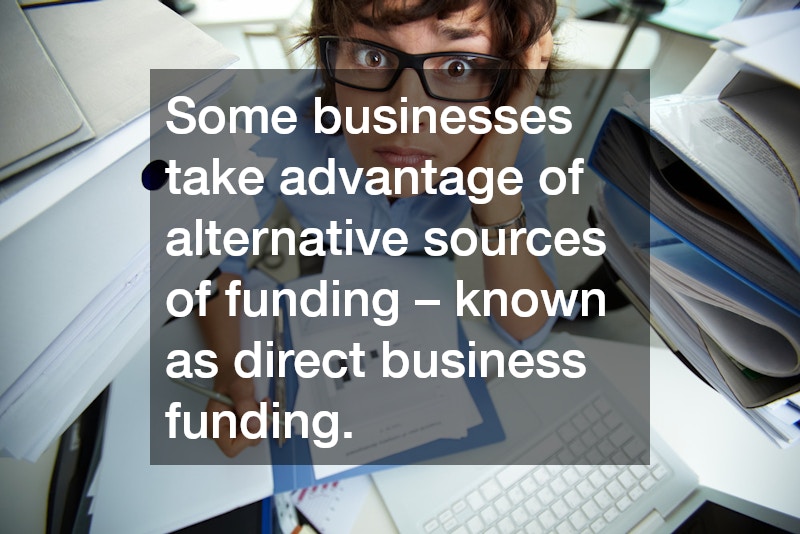
If you’re the owner of a business, there may be many times when you need money to invest in your industry. Most of the time that means you’ll need to find a business loan. To ask your initial business loan questions, talk to the bank where your company has a commercial account. They will be able to explain the guidelines for applying for a business loan. For a bank to approve financing for your loan, you’ll need to prove you meet several qualifications.

According to NerdWallet, most commercial banks insist that you must have been in business for two years, so you’ll need proof of when you started operating. Your business must also have an excellent credit rating. The bank will be aware of your business’s annual revenues, and they will use these amounts to provide proof that you can repay the loan.

Some businesses take advantage of alternative sources of funding – known as direct business funding. According to Breakout Capital, direct business loans are non-bank institutions that provide alternative methods of funding to provide funds for businesses. As a last resort, some business owners apply for personal loans, which means they are personally responsible for repaying the loan.

In order to start a new business or even to grow a current one, you might be thinking about lending money for financing. Business loans can be broken down in to two main categories: secured and unsecured. If you have to have a lot of money at one time, such as start up costs or a specific marketing venture that is sure to profit, getting a loan might be a good answer. However, if you are not almost positive that your business will be able to pay back the loan in a timely manner, this is not for you. You do not want to end up personally responsible for the entire loan and debt should something happen and your business not work out.
Secured Business Loans
This type of loan requires putting down some sort of collaterol to back the loan. If your credit history is not very good or the investor is uncertain about your business, this may be the only kind of loan you qualify for until the you can earn the investor’s trust.
Advantages
-
- You have the choice of paying your payments back over a longer period of time which lowers the monthly amount owed.
-
- It is typically easier to acquire this type of loan over an unsecured one because of the equity put into it.
-
- If you have poor credit, it is a great way to be able to build credit.
Disadvantages
-
- While you can pay over a longer period of time, this means the interest stacked against will be drawn out and you’ll end up paying more over all.
-
- Up front costs are typically much more than those of an unsecured business loan.
-
- Because you have already invested into the unsecured loan, you may find yourself short when trying to pay other bills each month which could tempt you to get a bigger loan, getting you into even more debt that you can’t pay off.
Unsecured Business Loans An unsecured business loan is just the opposite of a secured one. There is no collaterol required in order for the loan to be obtained. There are, of course, credit limits and income minimums that have to be approved but should those come out well, chances are you will be able to receive the loan.
Advantages
-
- The process for acquires an unsecured business loan is a lot less complicated because of not having to worry about collaterol.
-
- If you default on payments, the lender has no access to your assets without a court order.
-
- Bankruptcy can forgive unsecured loans but usually can’t touch secured loans.
Disadvantages
-
- Higher interest rates because of increased risk on the lender’s part. This means more money overall and more monthly as well.
-
- An unsecured business loan can be hard to qualify for because of the risk involved. If you are a start up business, it may be difficult to get an unsecured business loan approved due to lack of credit history for the business.
Either way there are pros and cons when trying to procure a business loan even if you are already an established company. Of course, an established company with good payment and credit history will have a much easier time obtaining even small business loans but there is still always the chance of defaulting if things take a wrong turn in the business and then you will be left with all that debt.
Should you have any hesitation or doubts in your mind about which loan you should be applying for, if any at all, the best thing to do is to talk with a professional funding expert and receive qualified advice. They will be able to look at your finances and let you know if a loan is something you should pursue or if you have other options that you may not have thought of. A loan is a great option but definitely be careful and live and work within your means. Getting a loan can be a tempting way of creating money that you don’t have, but the problem there is not having the money to pay it back.